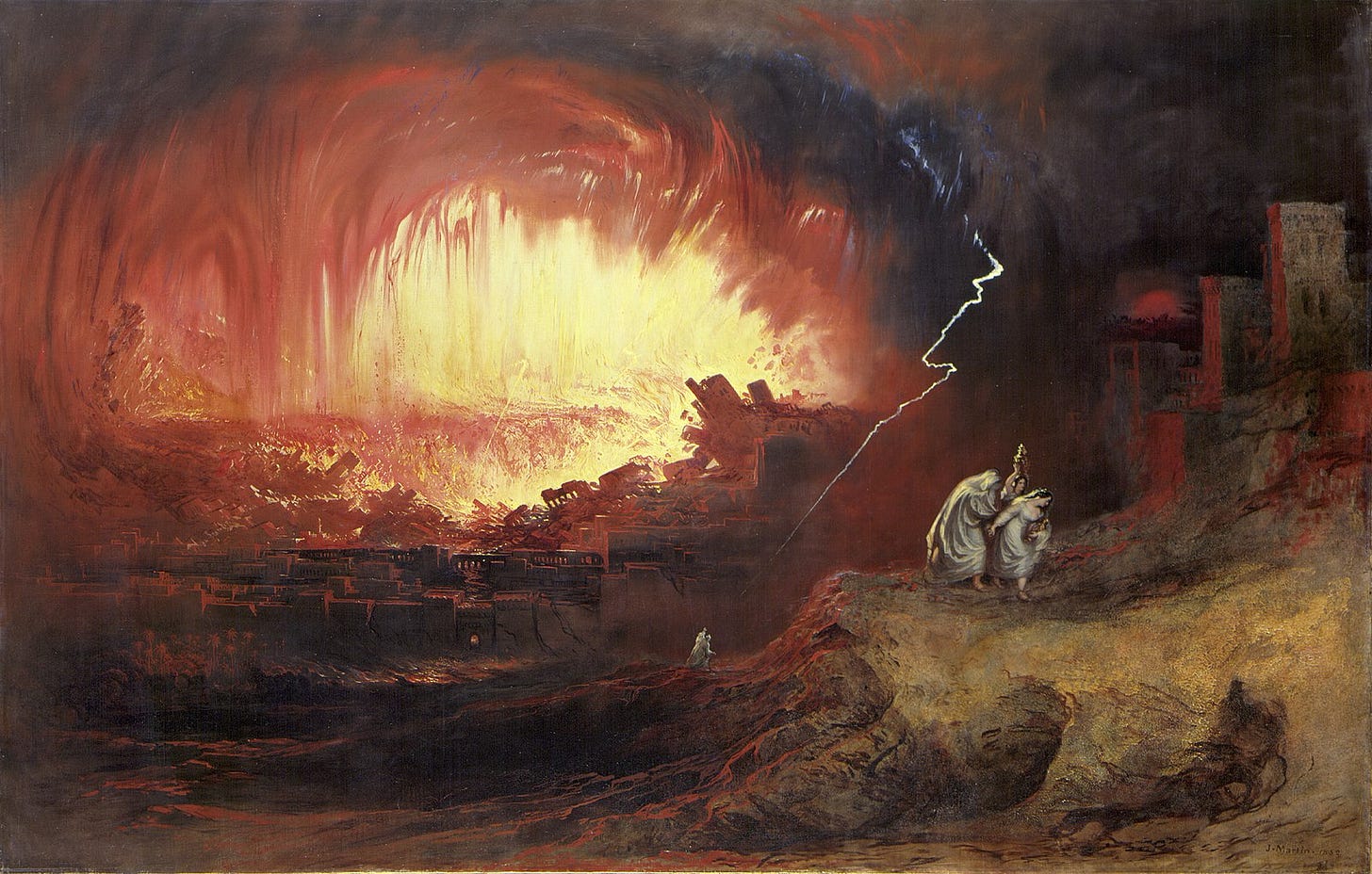Even for the heathens, atheists and agnostics of the world, it’s hard to believe we are not in a fire-and-brimstone moment. After all, whole cities are burning. If scenes from the Palisades and Eaton fires in Los Angeles are not reminiscent of hell on Earth, I’m not sure what is. Lone chimneys, retaining walls, and the metal skeletons of mini-vans are all that remain under ash-laden skies. The Palisades fire has burned 21,600 acres to date. That would be like burning Ketchum, Sun Valley, Hailey, and Bellevue to the ground … then burning them all over again.
Fire and brimstone has a storied past, namely stories in the Abrahamic religions: Judaism, Christianity, and Islam. Those who study ancient texts, which I do not, commonly consider fire and brimstone to be a manifestation of God’s wrath, which is not something I particularly want to mess with. But it does make a guy think.
The story most often cited by God-fearing folks in all three religions is that of Sodom and Gomorrah, cities at one time reputedly near the Dead Sea (between Jordan and Israel). For their sexual immorality—some interpret that to be homosexuality, others assume it to be rape, child abuse and other sexual depravity—God rained down on the “wickedness” fire and brimstone, the latter an anachronistic term for sulphur. Fire seems logical enough; sulphur is a little more curious. I suppose it could refer to the sulphur oxides released when lightning electrifies the atmosphere. Sadly, fire and the smell of rotten eggs doesn’t have the same poetic rhythm as fire and brimstone.
Another story of retribution is, of course, the great flood (Genesis), whereupon God decided that all that he had created was corrupt and so would be destroyed in a rain of water rather than of fire. It seems Noah was the one righteous man on Earth and, therefore, was entrusted with the do-over, a Biblical mulligan.
This week’s fire storms and the massive flooding in 2024—think Hurricanes Beryl, Helene, and Milton, names you might find in a happy little 1950s movie—sound eerily familiar to previous demonstrations of God’s wrath as recorded in ancient texts. Today, in Los Angeles, there is destruction, death, heartache, and an air of apocalypse.
The fact is our atmosphere is warming up, the oceans are warming up; these things are easily measured. Last year was the hottest year recorded since people started measuring global ambient temperatures (since about 1880, notably before the Industrial Revolution).
Even if God were punishing us, trying to wipe us out in order to start over, I have a hard time with the ideas of wrath and retribution. Those don’t seem like very Godly characteristics. Would a benevolent God display wild anger, engage in revenge and retribution because someone messed up his sandbox, used his toys in ways he didn’t approve of? No, that seems more like something a politician would engage in.
A simpler explanation—like Edgar Allen Poe’s “Purloined Letter”—is right in front of us. Whatever energy balance between cooling and heating forces the Sun and Earth have reached over human history is clearly out of whack. We have fiddled with the great energy equation that governs us to such an extent that we are no longer in equilibrium with the big fire ball in the sky. The Sun—limitless and relentless—is showering us with more heat than we can possibly accommodate.
The good news is we can fix it. That is, if we stop blaming God, or the “natural cycle” of things, which is just another head-in-the-sand, throw-up-your-hands, I’m-doing-just-fine-now philosophy.
When your house gets too hot, what do you do? You open the window. The same principle applies on a global-atmosphere scale. It’s just that opening the window requires cooperation and a sense of community over self, qualities that can be fleeting, even mocked in modern times, but ones that just might save our souls.
Living in fear of great wrath and retribution is no way to live. Why not just admit we made a mess, take responsibility for it, and get on with cleaning it up. To quote Andy Dufresne in “The Shawshank Redemption”: “I guess it comes down to a simple choice, really. Get busy living or get busy dying.”



